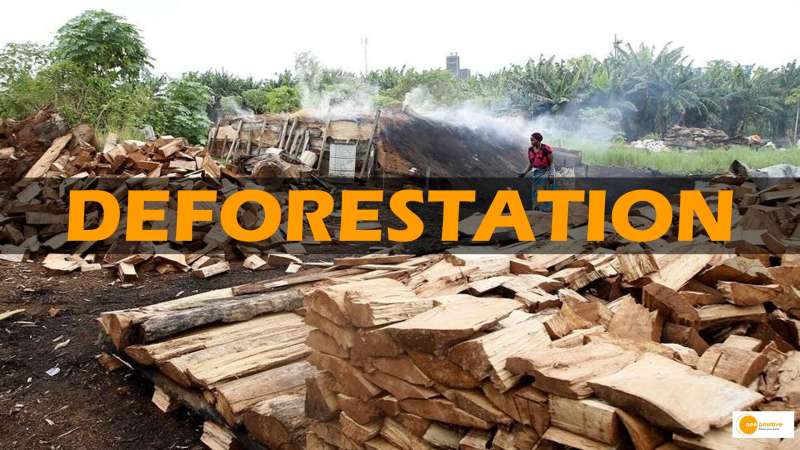

Introduction
With the spirit of finishing this year on a high note came a significant verdict, one which was in the works for months. Adhering to their discussions regarding tackling deforestation at last year’s United Nations’ climate change conference, the 27-country bloc arrived at a bold conclusion, banning the sale of goods across the European continent that is a product of deforestation.
Europe’s significant step towards battling climate change
On Monday, the European Union reached an agreement to ban the sale of products that are linked to deforestation by 2030. The move is seen as a major victory for environmentalists and comes after years of negotiations.
The agreement will prohibit the use of palm oil, soy, beef, and timber in all products sold in the EU. It also includes a plan to increase forest cover across Europe by 20
percent by 2020.
Deforestation is a major problem for the environment, as it leads to the loss of valuable forestland, which can hurt climate change and biodiversity.
Palm oil is blamed for deforestation in countries like Indonesia and Malaysia, while the soy is used in animal feed and can contribute to deforestation when grown on converted grasslands. Beef production is also problematic, as cattle ranching has been known for causing uneventful deforestations worldwide.
Timber is a particularly tricky issue, as it can be sourced from sustainably managed forests or from illegal logging operations that destroy rainforests.
The agreement reached its closure after months of discussions. It will cover a range of products, including timber, palm oil, and beef. The aim is to make sure that any product sold in the EU is not associated with deforestation somewhere else in the world.
This is a significant step forward for the environment, and it shows that the EU is serious about tackling climate change. It also sends a message to other countries around the world that they need to do more to prevent deforestation.
Supporters of the new agreement say that it will help protect vulnerable ecosystems and promote sustainable practices. But opponents argue that it could lead to higher prices for food and other products and may not be effective in reducing deforestation.
Products that have been banned
This is part of the EU’s efforts to combat climate change, as deforestation accounts for around 10% of global greenhouse gas emissions. The products that have been banned include palm oil, beef, soybeans, and even aluminum.
The deal reached by the European Union has been the subject of years of research and study done by EU-friendly organizations and the EU themselves.
Palm oil is one product that is consistently in high demand around the world. Palm oil is key requirement in kitchen around the world and serves as a raw material for biodiesel fuel, and cosmetics. Palm oil cultivation is the main reason for deforestation of dense evergreen forests in countries such as Malaysia, Indonesia, and other south East Asian countries.
Forest areas are cleared at large scale, contributing to climate change and loss of biodiversity at an alarming rate.
Beef is another product that has been linked with deforestation. Cattle ranching is a major driver of deforestation in Latin America, Africa, and Asia. The clearing of land for cattle ranching leads to the loss of habitat for animals and plants, as well as increased carbon emissions from fires used to clear land.
Soybeans, a major cash crop in Brazil, have heavily contributed towards the clearing of hundreds of acres of Amazonian land for agricultural purposes where their production was performed on a large scale. However, the changing weather patterns due to the la Nina event have impacted the nation’s agricultural potential.
Although having nutritional benefits, soybeans are mostly grown on deforested land which is why the EU did not hesitate to include them among its list of banned products for sale on European soil.
How the EU’s verdict might impact the deforestation rates around the world
From the perspective of countering the growing impact of climate change, this is a significant step as it will help to prevent further destruction of our planet’s natural resources. Deforestation is a major contributor to climate change, so by banning these products, the EU is taking an important step toward mitigating its effects.
The ban introduced by the EU seeks to have a significant impact on deforestation rates around the world. It will encourage consumers to be more conscious of the products they purchase, and to choose those that are environmentally friendly.
This will force companies to find alternative ways to source their materials, which could lead to less deforestation, and create demand for sustainable products, which in turn will incentivize businesses to invest in green technology.
The ban also sends a message to other countries that it is important to take action against climate change.
However, with all the positives that can come out of this historic verdict, there are some drawbacks to this ban. It is argued by certain experts that this could lead to price hikes on goods that now after the verdict are going to grow more expensive to produce due to the lack of available forest-friendly materials.
The ban could also create geopolitical tensions between the EU and non-EU countries who disagree with the ban. Despite these potential setbacks, the perceived belief is that the EU’s verdict is a strong step forward in combating deforestation and global climate change.
Conclusion
The European Union’s decision on banning the sale of goods that are a product of deforestation comes at a turbulent time when Europe, along with the rest of the world is feeling the repercussions of Russia’s war with Ukraine where the war has been responsible for triggering an import-export crisis that has affected the world economy and caused inflation spikes that reached decades’ high in certain countries. But despite the immediate drawbacks the decision might present, it is going to bring a much-needed positive change in the global agricultural industry and contribute towards the much-needed improvement on climate change.


